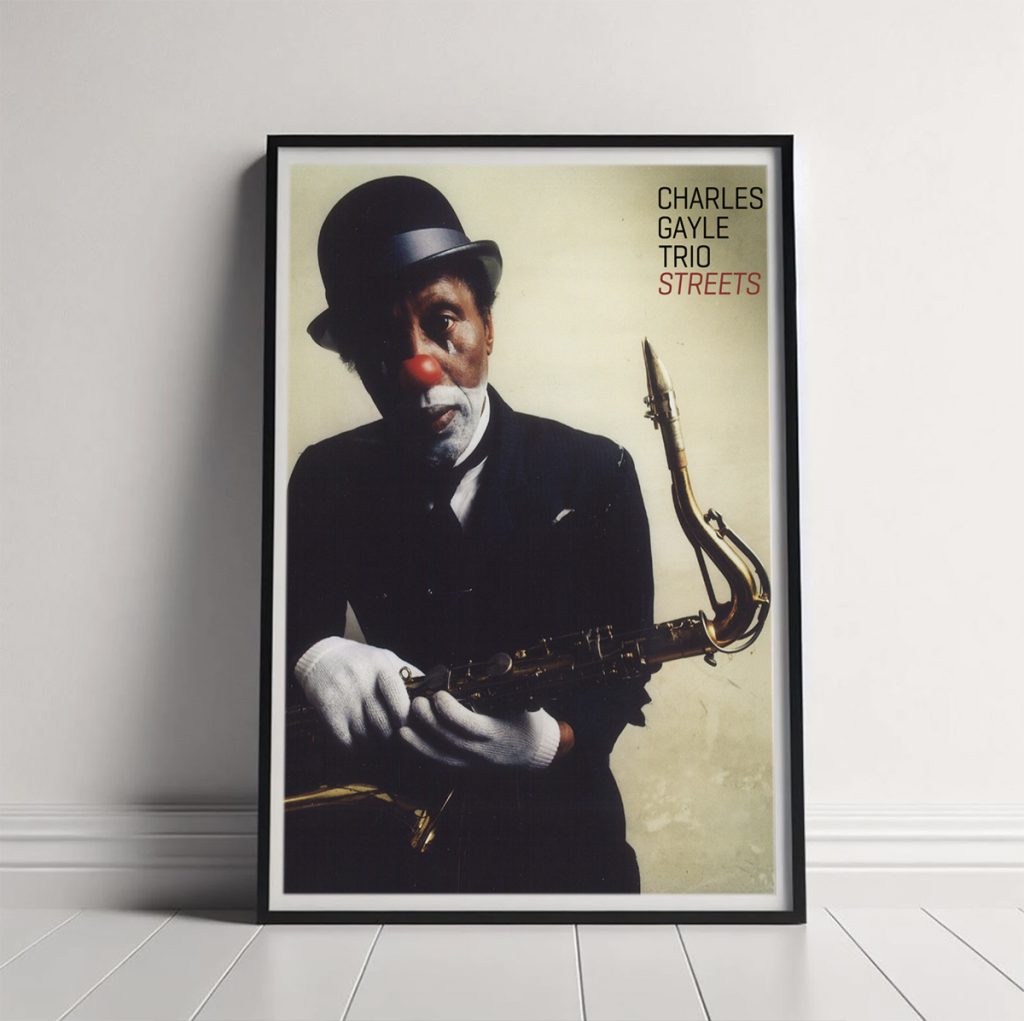
Charles Gayle
Music Artist
Tenor saxophone
Alto saxophone
Piano
Bass clarinet
Acoustic bass
About Charles Gayle
Charles Gayle: Buffalo’s Free Jazz Visionary
Born on February 28, 1939, in Buffalo, NY, Charles Gayle’s life was a testament to the power of perseverance, creativity, and self-expression. A master of free jazz, Gayle’s music transcended tradition, blending the raw emotions of life with a deep spirituality that resonated across decades and audiences. His contributions transformed the world of jazz, earning him a place among the genre’s greats while staying true to his roots even in the face of incredible challenges.
A Journey Born in Buffalo
Buffalo, a city known for its rich cultural heritage, served as the starting point for Charles Gayle’s incredible career. Though little is known about his early years, Buffalo’s legacy of nurturing creative talent undoubtedly left a mark on Gayle as he pursued music. Early in his life as a musician, Gayle showcased immense potential as an instrumentalist, gravitating toward the raw and expressive nature of free jazz.
His beginnings in his hometown paved the way for his eventual move to New York City, where his music would be shaped by the city’s energy, chaos, and challenges.
Homelessness and Musical Adversity
When Gayle relocated to New York City in the 1970s, he embarked on an unconventional path. He spent more than a decade homeless, playing his saxophone on the streets, in subway stations, and on street corners to survive. For Gayle, this wasn’t just a necessity; it was a deliberate choice. He decided to shed material attachments and immerse himself fully in his music and faith.
During this time, Gayle often earned less than three dollars a day. He broke away from societal norms, refusing the safety of stability in favor of a spiritual and musical awakening. Gayle described this decision as a way to strip everything away and focus solely on playing. He said, “I had to shed my history, my life, everything had to stop, and if you live through this, good, and if you don’t, you don’t.” These street performances became a training ground for his artistry, influencing his raw, unfiltered sound.
Breaking Through with Free Jazz
Gayle’s life took a turn in the late 1980s when his talent started receiving recognition. A series of recordings for the Swedish label Silkheart catapulted him into prominence. Albums like Always Born (1988) and Homeless (1989) captured the fierce energy and deep spirituality of his music, cementing his reputation as a free jazz innovator.
His 1993 album Touchin’ on Trane, recorded with bassist William Parker and drummer Rashied Ali, remains one of his most celebrated works. Featuring raw improvisation and deeply spiritual undertones, the album paid homage to the legacy of John Coltrane while firmly establishing Gayle’s unique voice.
The Creation of ‘Streets’
Always one to push boundaries, Gayle created a theatrical alter ego named “Streets” in the 1990s. Performing in clown makeup and ragged clothes, Streets became a vessel for deeper emotional and social commentary. More than just a character, Streets reflected the duality of despair and hope that defined Gayle’s music.
On stage, he would pantomime, act out emotional scenes, and draw audiences into his world. Whether acting out heartbreak or joy, Streets allowed Gayle to explore artistic dimensions beyond sound. This character also represented freedom—a liberation from his personal identity and struggles—and gave him a way to connect with his audience on a visceral level.
A Spiritual Force in Music
Gayle’s faith was at the core of his music. Deeply inspired by the Bible and gospel traditions, he often infused his compositions with spiritual themes. Albums like Repent and Christ Everlasting revealed his belief in music as a way to channel divine messages.
His live performances, which often included spontaneous sermons, combined music, faith, and storytelling in a way that was both provocative and transcendent. Gayle believed his role went beyond entertainment—he wanted his work to evoke reflection, faith, and unity.
Legacy and Influence
Charles Gayle’s influence on jazz cannot be overstated. Drawing inspiration from saxophone legends like Albert Ayler and John Coltrane, he extended their work into bold new directions. His sound, often described as fierce and unruly, conveyed the gritty realities of life while channeling profound spiritual energy.
Gayle’s work as a street musician, educator, and innovator left an indelible mark on the world of jazz. His music remains a testament to the power of resilience, creativity, and faith. Even after his passing on September 7, 2023, his legacy continues to resonate with audiences and jazz enthusiasts alike.
Remembering Charles Gayle
From Buffalo’s vibrant cultural beginnings to the streets of New York City, Gayle’s life was a symphony of struggle, faith, and artistry. His relentless dedication and radical style earned him a place in the annals of jazz history while proving that music could transcend boundaries, eras, and genres.
Charles Gayle’s life reminds us that true artistry often comes from struggle and the courage to forge one’s own path. His story is an inspiration to musicians and creators everywhere, showing that greatness comes not from conformity but from daring to be different.
